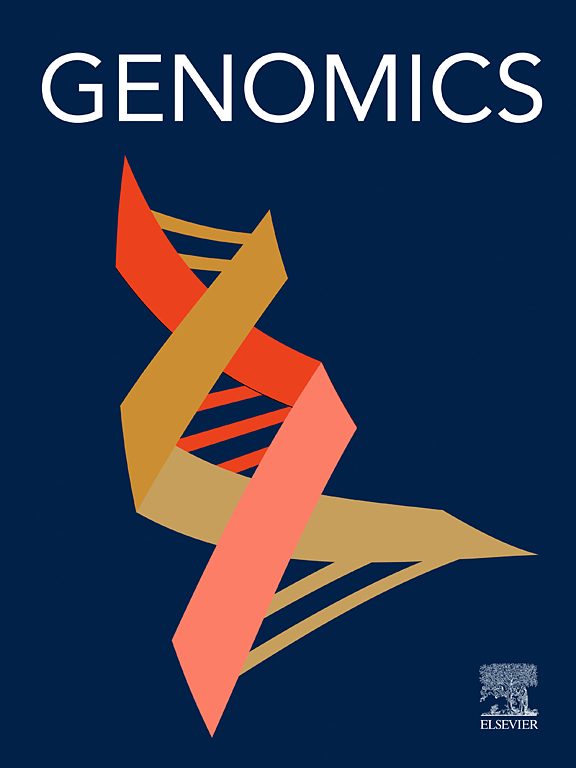Identification of microRNA-mRNA regulatory network associated with microplastic exposure in Mytilus galloprovincialis
IF 3
2区 生物学
Q2 BIOTECHNOLOGY & APPLIED MICROBIOLOGY
引用次数: 0
Abstract
The ever-growing plastics production and their natural fragmentation in micro- and nanoparticles have made plastic debris ubiquitous, with aquatic environments as the final collection basin. Plastic pollution is responsible for physical damage and biological pathways disruption in marine animals at almost all trophic levels, interfering with primary processes as development, growth, and reproduction. Micro- and nanoplastics accumulate in the food chain and represent a concrete risk for human health. Mussels have a worldwide spread and, as a starring seafood product, may constitute an important vehicle for microplastic uptake in humans.
Micro- and nanoplastics affect biological processes at the nuclear level, altering DNA methylation and gene regulators, including long non-coding (lncRNAs) and microRNAs (miRNAs). MicroRNAs, interacting with several mRNA targets, can prompt several processes, including antioxidant responses, inflammation, immune system cell recruitment, up to apoptosis.
The present study investigates the impact of microplastic particles on the modulation of microRNAs in adult mussels Mytilus galloprovincialis and the identification of microRNA-mRNA regulatory network. In this work, we exposed adult mussels to different concentrations and several temporal window to polystyrene monodispersed microparticles and analysed the expression of selected microRNAs and related target genes. Our results revealed that microplastic exposure induces miRNAs modulation and target genes associated with the activation of specific regulatory networks, including immune response, cellular stimuli response, protein interactions, apoptosis, and cell death.
This study provides new insights into the microplastic capability to affect gene expression and regulatory pathways mRNA miRNA-regulated, contributing to wider knowledge about the adverse effects of plastic pollution and providing useful data for further trials, not just in nature, but also in human health.
与紫贻贝微塑料暴露相关的microRNA-mRNA调控网络的鉴定。
不断增长的塑料产量及其以微颗粒和纳米颗粒的形式自然破碎,使塑料碎片无处不在,而水生环境是最终的收集池。塑料污染对几乎所有营养水平的海洋动物造成物理损伤和生物通路中断,干扰发育、生长和繁殖等初级过程。微塑料和纳米塑料在食物链中积累,对人类健康构成具体风险。贻贝在世界范围内广泛传播,作为一种主要的海鲜产品,可能是人类吸收微塑料的重要载体。微塑料和纳米塑料在核水平上影响生物过程,改变DNA甲基化和基因调控因子,包括长链非编码(lncrna)和microrna (mirna)。MicroRNAs与几个mRNA靶点相互作用,可以促进几个过程,包括抗氧化反应、炎症、免疫系统细胞募集,直至细胞凋亡。本研究研究了微塑料颗粒对成年贻贝(Mytilus galloprovincialis) microrna调控的影响以及microRNA-mRNA调控网络的鉴定。在这项工作中,我们将成年贻贝暴露于不同浓度和几个时间窗口的聚苯乙烯单分散微颗粒中,并分析了选定的microrna和相关靶基因的表达。我们的研究结果表明,微塑料暴露诱导mirna调节和靶基因与特定调节网络的激活相关,包括免疫反应、细胞刺激反应、蛋白质相互作用、细胞凋亡和细胞死亡。这项研究为微塑料影响基因表达和miRNA调控途径的能力提供了新的见解,有助于更广泛地了解塑料污染的不利影响,并为进一步的试验提供有用的数据,不仅在自然界,而且在人类健康方面。
本文章由计算机程序翻译,如有差异,请以英文原文为准。
求助全文
约1分钟内获得全文
求助全文
来源期刊

Genomics
生物-生物工程与应用微生物
CiteScore
9.60
自引率
2.30%
发文量
260
审稿时长
60 days
期刊介绍:
Genomics is a forum for describing the development of genome-scale technologies and their application to all areas of biological investigation.
As a journal that has evolved with the field that carries its name, Genomics focuses on the development and application of cutting-edge methods, addressing fundamental questions with potential interest to a wide audience. Our aim is to publish the highest quality research and to provide authors with rapid, fair and accurate review and publication of manuscripts falling within our scope.
 求助内容:
求助内容: 应助结果提醒方式:
应助结果提醒方式:


